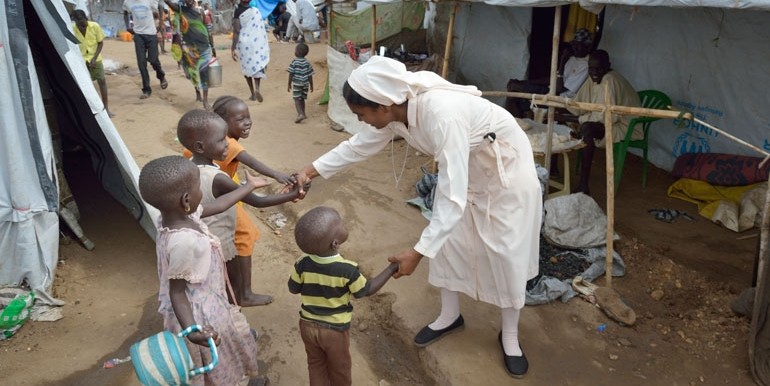The South Sudan Council of Churches has called on soldiers not to continue killing their fellow countrymen, urging people to put out the “fires of tribalism.”
The church leaders on Tuesday issued an Easter Message questioning why violence has not ended in the country in spite of a peace deal signed last August 2015. The peace deal was meant to bring an end to a civil war that has ravaged the country since December 2013.
“Why are our Leaders not listening to our pleas for peace? Why are our soldiers and young men continuing to obey orders to kill their brothers and sisters. Why are the fires of tribalism still being stoked?” says the pastoral letter.
“Why is the greed and self-interest of certain individuals and groups still dominating the narrative in our nation? Where are the Leaders who will put the good of the nation, of children, women and men of all communities, above their own narrow interests?”
“Truly, our nation has not yet experienced the joy of the Resurrection; we are still in Lent, experiencing suffering and death,” wrote the church leaders, referring to the upcoming Easter holiday, the central date of the Christian calendar, which ends the traditional solemn period of Lent.
Catholic Archbishop Paulino Lukudu, SSCC Chairman Rt. Rev. Peter Gai Lual, Bishop Arkanjele Wani Lemi of the Africa Inland Church, Pentecostal Overseer Isaiah Majak Dau, Presbyterian Moderator James Par Tap Thon, Rev. James Kuong Ninrew of the Presbyterian Church, Sudan Interior Church Rev. Bolous Suba, and SSCC General Secretary Fr. James Oyet signed the statement.
The church leaders said that Easter is “the ultimate expression of hope triumphing over times of darkness and despair,” calling on every South Sudanese citizen, particularly those carrying guns, to join in peace efforts.
They also took the opportunity also to announce that the churches would roll out a “three-pronged programme” to help bring peace to the country, citing plans for advocacy, forums for grassroots discussions and reconciliation.
“Building on the successful methodologies of the People to People Peace Process (Wunlit) and the Church-led Independent Committee for National Healing, Peace and Reconciliation, we will launch a grassroots consultation and reconciliation process which will last not for one or two years but for one or two decades.”
File photo: A member of the Catholic Order Daughters of Mary Immaculate, greets children inside a UN camp in Juba, South Sudan, April 2015 (Paul Jeffrey/ Catholic News Service)



